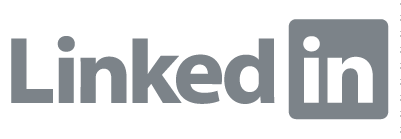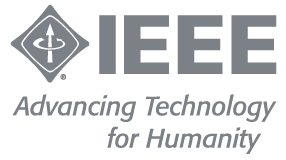'Quiet quitting' is not about lazy employees. It's envisioning a different work culture that employers should consider.

Have you heard of "quiet quitting"? It is a buzzword going mainstream on TikTok and other social media that describes workers - mainly Gen Z - hitting their work goals but not exceeding them to spend time with friends and family. They ditch the "hustle" mentality of giving priority to the job, no matter what.
Working smarter instead of harder, quiet quitters want to spend more time enjoying hobbies while still hitting their marks and getting the job done, which leads to better work-life balance.
If you recognize yourself in this description and are considering disengaging, remember that experience and transferable skills are your most important asset - they can account for 50% or more of your lifetime earnings. Transferable skills are expertise that may be used in various roles or occupations. Examples are innovation thinking, adaptability, teamwork, attention to detail, lean startup culture, and several others. All those abilities are part of the Silicon Valley entrepreneurship mindset, and core learning modules of the TVLP programs - virtual and in-person - attract an increasing number of participants among employees.
Elevating professional skills is one of the first steps for quiet quitters, more willing to challenge themselves than other employees. Recent research on IEEE Transactions on Engineering Management reports that learning from the personal and professional multicultural, multi-job-function, or multi-industry unique experience of successful entrepreneurs and investors is critical. Only those who turned some of the most successful Silicon Valley startups into iconic companies can share it.
Many places are still hiring at a reasonable speed, and up to two in five employees are considering leaving their jobs, creating good opportunities for job seekers. So if you're thinking of quitting (not the quiet kind), you might be in good shape.
If you are an employer, you sit on the other side of the table and should consider a few things.
Flexibility is key. Gen Z wants hybrid or remote options - Jingfang Cai, VP of Talent Development at LinkedIn, recently said to The Washington Post. So employers should consider offering flexible options that allow workers to choose what makes sense.
Being recognized for their efforts is another critical matter for these employees. According to McKinsey, relationships with bosses are the top factor in employee job satisfaction, and transparency is widely demanded. Gen Z wants to know what their employers value, how that's being prioritized, and what investments are made.
Companies may want to reconsider their workforce organization, preferring a horizontal structure with smaller teams arranged as a startup. Prioritize learning. Gen Z wants to grow and learn, Jingfang Cai says, so companies should offer employees opportunities for training, professional growth, and mentorship to develop themselves and work on their ideas. They could learn from successful startup founders how to get the work done rather than the employee just busy working.
If you are an HR leader and want to know more about entrepreneurship training, professional growth, and mentorship for your employees, talk to our Corporate Team at corporate@tvlp.co

Have you heard of "quiet quitting"? It is a buzzword going mainstream on TikTok and other social media that describes workers - mainly Gen Z - hitting their work goals but not exceeding them to spend time with friends and family. They ditch the "hustle" mentality of giving priority to the job, no matter what.
Working smarter instead of harder, quiet quitters want to spend more time enjoying hobbies while still hitting their marks and getting the job done, which leads to better work-life balance.
If you recognize yourself in this description and are considering disengaging, remember that experience and transferable skills are your most important asset - they can account for 50% or more of your lifetime earnings. Transferable skills are expertise that may be used in various roles or occupations. Examples are innovation thinking, adaptability, teamwork, attention to detail, lean startup culture, and several others. All those abilities are part of the Silicon Valley entrepreneurship mindset, and core learning modules of the TVLP programs - virtual and in-person - attract an increasing number of participants among employees.
Elevating professional skills is one of the first steps for quiet quitters, more willing to challenge themselves than other employees. Recent research on IEEE Transactions on Engineering Management reports that learning from the personal and professional multicultural, multi-job-function, or multi-industry unique experience of successful entrepreneurs and investors is critical. Only those who turned some of the most successful Silicon Valley startups into iconic companies can share it.
Many places are still hiring at a reasonable speed, and up to two in five employees are considering leaving their jobs, creating good opportunities for job seekers. So if you're thinking of quitting (not the quiet kind), you might be in good shape.
If you are an employer, you sit on the other side of the table and should consider a few things.
Flexibility is key. Gen Z wants hybrid or remote options - Jingfang Cai, VP of Talent Development at LinkedIn, recently said to The Washington Post. So employers should consider offering flexible options that allow workers to choose what makes sense.
Being recognized for their efforts is another critical matter for these employees. According to McKinsey, relationships with bosses are the top factor in employee job satisfaction, and transparency is widely demanded. Gen Z wants to know what their employers value, how that's being prioritized, and what investments are made.
Companies may want to reconsider their workforce organization, preferring a horizontal structure with smaller teams arranged as a startup. Prioritize learning. Gen Z wants to grow and learn, Jingfang Cai says, so companies should offer employees opportunities for training, professional growth, and mentorship to develop themselves and work on their ideas. They could learn from successful startup founders how to get the work done rather than the employee just busy working.
If you are an HR leader and want to know more about entrepreneurship training, professional growth, and mentorship for your employees, talk to our Corporate Team at corporate@tvlp.co
Ph. credit: Unsplash

















